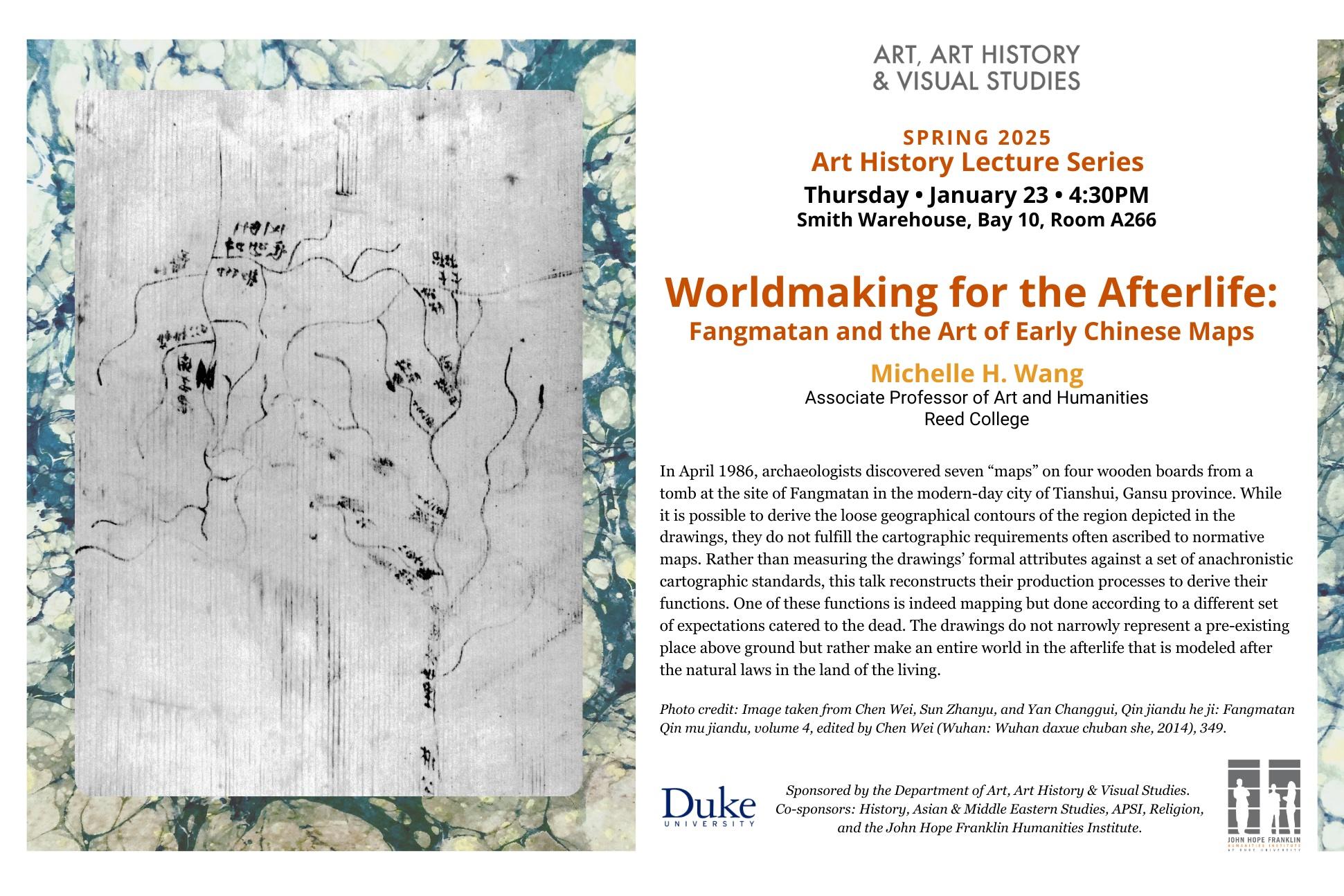“Worldmaking for the Afterlife: Fangmatan and the Art of Early Chinese Maps”

Speaker
Michelle H. Wang (Associate Professor of Art and Humanities at Reed College)
In April 1986, archaeologists discovered seven "maps" on four wooden boards from a tomb at the site of Fangmatan in the modern-day city of Tianshui, Gansu province. While it is possible to derive the loose geographical contours of the region depicted in the drawings, they do not fulfill the cartographic requirements often ascribed to normative maps. Rather than measuring the drawings' formal attributes against a set of anachronistic cartographic standards, this talk reconstructs their production processes to derive their functions. One of these functions is indeed mapping but done according to a different set of expectations catered to the dead. The drawings do not narrowly represent a pre-existing place above ground but rather make an entire world in the afterlife that is modeled after the natural laws in the land of the living.
Sponsored by the Department of Art, Art History & Visual Studies.
Co-sponsors: History, Asian & Middle Eastern Studies, APSI, Religion, and the John Hope Franklin Humanities Institute.
Talk will be held in room A266 Bay 10 on the second floor of Smith Warehouse. Free and open to the public.
Categories
Lecture/Talk, Visual and Creative Arts